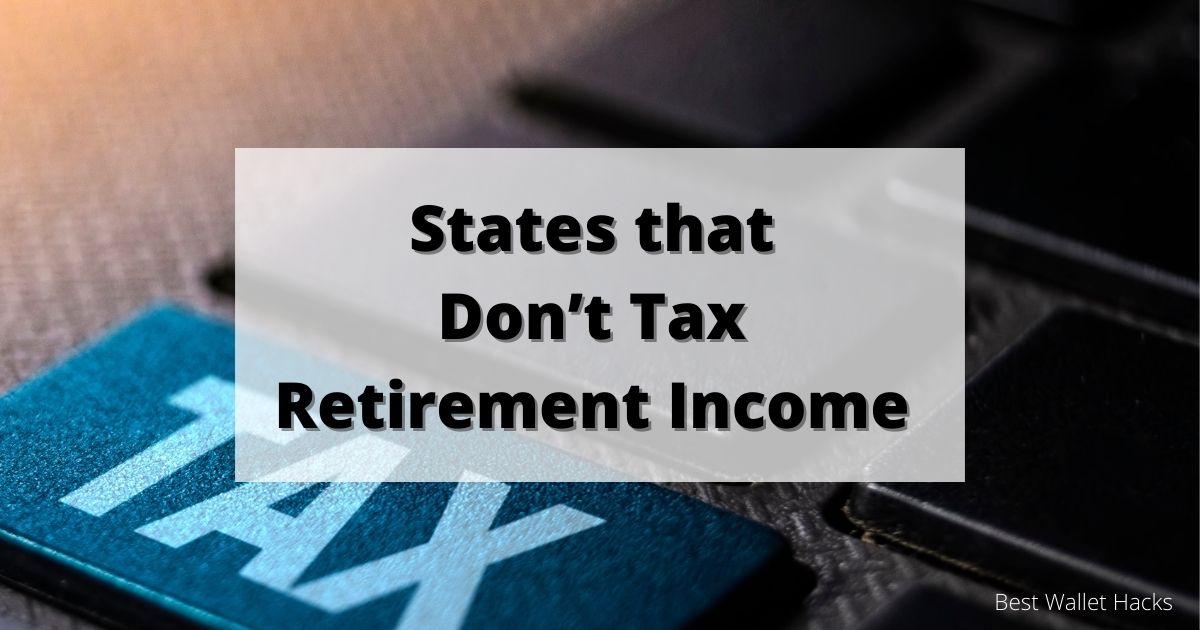States That Don’t Tax Retirement Income


If you’re considering relocating to a different state when you retire, you might want to think about how your income will be taxed in the state you plan to move to.
State income taxes can range as high as 13.3% – unless you live in a state that doesn’t tax retirement income.
Nine states impose no income tax at all.
If you are a retiree, you can move to any one of those states without concern for the state income tax liability on your retirement income. However, there are many other states that exempt income from specific retirement sources, like Social Security, pensions, military pensions, and distributions from defined contribution retirement plans.
Read More:
Nine states currently have no income tax. Since they don’t tax income, that also means they don’t tax retirement income.
The nine states with no income tax include:
* New Hampshire had a 3% income tax levied on interest and dividend income received in 2024. However, this tax has been repealed starting January 1st, 2025.
As is the case with federal income tax, most states tax distributions from defined contribution plans.
These include traditional, SEP, and SIMPLE IRAs; 401(k), 403(b), 457, and Thrift Savings Plans (TSPs). However, 13 states don’t impose tax on defined contribution plan distributions. (Source: Bankrate)
Included are the nine “no income tax” states with no income tax, along with these four additional states that don’t tax defined contribution plan distributions:
Generally speaking, states follow the same tax treatment with Roth IRA distributions as the IRS. But since each state has its own tax code, you’ll need to check with your tax preparer or tax software program to determine if (and when) Roth IRA distributions can be taken tax-free.
* Note that in researching for this article, we could not identify a single authoritative source confirming conclusively that Roth IRA distributions can be taken tax-free in all 50 states and the District of Columbia.
A total of 15 states don’t tax pension income. In addition to the nine states with no income tax, six additional states impose no income tax on pension income (also known as defined benefit retirement plans). (Source: Kiplinger)
A total of 32 states don’t tax military pensions. In addition to the nine states with no income tax, the following 23 states don’t tax military pensions. (Source: MyArmyBenefits, The official military benefits website of the U.S. Army, Table of 2021 State Taxes and Military Retired Pay):
The following 16 states provide partial exemption from state income tax on military pensions:
Only three jurisdictions provide no exemption for military pensions:
A total of 37 states, plus the District of Columbia, exempt Social Security benefits from taxation. That includes the following 28 states and the nine that impose no income tax. (Source: The Tax Foundation):
The remaining 13 states provide partial tax exemption of Social Security income, either based on age or income level or with some other form of modification:
All things being equal, retirees are financially better off living in states that don’t tax retirement benefits. But as we all know, all things are seldom equal. So while state income taxes are an important consideration, they shouldn’t be the only deciding factor on where you should live out your golden years.
You must also consider other types of taxes, such as sales and real estate taxes.
For example, New Hampshire is one of the states with no income tax, but it has some of the highest property taxes in the country. In that case, the benefit of not paying income tax may be offset by higher property taxes.
Housing prices are another consideration. The state of Washington has no income tax, but the median price of a house is $552,000. The cost of purchasing a home in Washington state could easily cancel out the benefit of tax-free retirement income.
Insurance is another factor. Florida has no income tax and is a popular destination for retirees. But, the state also has the highest car insurance premiums in the country, at an average of $2,694 per year, and the highest average homeowner’s insurance premiums, at $10,996 per year.
All of this is to say that while the income tax impact on retirement is important, it’s just one piece of the puzzle. Living in a state that doesn’t tax retirement income is a major plus, but it can be offset by other costs that are not easily avoided.

Picture this: a world where giving not only brings joy to others but also multiplies your own wealth. It sounds...

Two registered investment advisors with significant presence in individual wealth and employer-based retirement plan advice have appointed new firm-wide leaders...

Reviewing your financial goals is one of the most valuable gifts you can give yourself, whether it’s at the start of a new year or anytime you need...